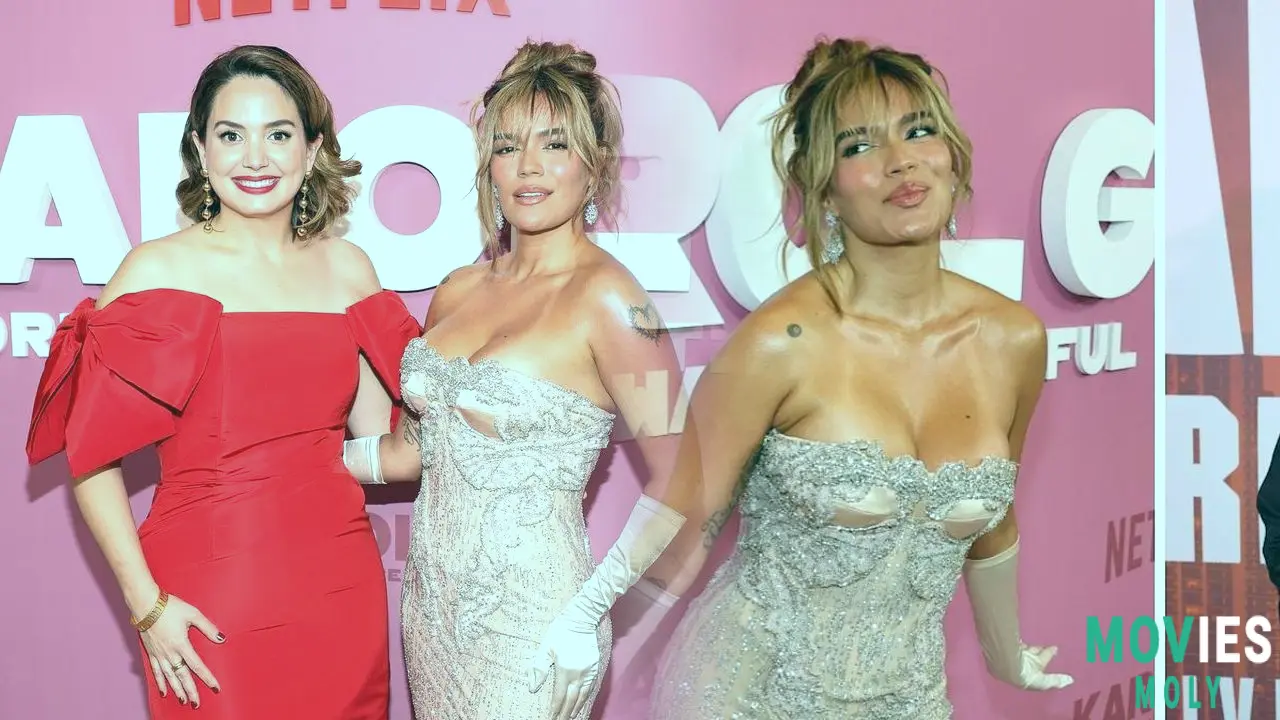Karol G isn’t just giving fans another look at her glittery life on stage. With Tomorrow Was Beautiful—her new Netflix documentary—she offers a raw, unfiltered portrait of what it truly means to be a woman, a Latin artist, and a human under the microscope of superstardom.
“Tomorrow Was Beautiful” exposes Karol G’s emotional highs and lowsThe film follows Karol G through her Mañana Será Bonito tour, capturing moments of triumph and breakdowns just as closely. Director Cristina Costantini, who earned Karol’s trust with a small crew and unobtrusive cameras, manages to capture the sharp contrast between the public persona and the private pain. One scene sticks out: after performing for 90,000 people at MetLife Stadium, Karol G steps offstage and cries for an hour.
It’s not the image of success we’re used to seeing. But that’s the point.
The perfectionism that pushed her to the edge — and beyond

Karol G’s drive for perfection is visible throughout the documentary. She breaks down after the first night of her stadium tour in Las Vegas when technical glitches and wardrobe malfunctions ruin her vision. She pushes her team harder until every detail matches what she imagines. “Nothing seems right to me,” she says.
This need to control every element — from stage visuals to camera angles — shows a side of Karol G that most fans don’t see. She isn’t just performing. She’s fighting to give her audience what she believes they deserve. And that fight is exhausting.
Her darkest memory: sexual harassment almost silenced her forever

In one of the most heart-wrenching moments, Karol G opens up about being sexually harassed at 16 by a music manager. The memory, never before fully explored on camera, resurfaces with painful clarity. She says she walked away from music for a time, moving to New York to live with her aunt.
“I can assure you that no woman who respects herself would allow being harmed to achieve something,” she says, pausing as the emotion overwhelms her. The honesty of this moment — and her willingness to share it — gives the entire documentary weight.
She speaks candidly about her toxic past relationship

Karol G never names him, but the shadow of her relationship with Anuel AA looms large. She describes the breakup not as heartbreak, but as trauma. “It was a fucking nightmare. It was hell,” she says. She recalls waking up in a state of emotional collapse, unable to recognize her own worth.
The footage makes it clear: this wasn’t just a bad relationship. It was a period that nearly broke her. And yet, she survived — and grew — from it.
Her love for Feid grew from friendship to soul connection
Karol G’s relationship with Feid feels genuine in a way that contrasts with her past. She recounts how they started—gaming and flirting backstage during her Bichota tour. Her eyes light up when she talks about him. “I have such a beautiful relationship with him… It’s everything,” she says.
Not as a craving for approval, but as a reflection of shared values and respect. This is Karol G in love — mature, excited, and real.
“Bichota” means more than a label — it’s a movement she created
Originally wary of the term’s association with drug culture, Karol G reclaimed “Bichota” to mean female power, ownership, and vision. She wanted to create a word that didn’t just describe her, but empowered others. “Now people call me bichota,” she says. “And it’s not just about me. It’s about how the word makes people feel.”
What started as a risky move became a cultural anthem. That’s Karol G’s instinct: turn what scares you into what fuels you.
Her tribute to Selena Quintanilla was one of the most emotional momentsAt her San Antonio show, Karol G performed “Como La Flor” and invited Selena’s sister Suzette Quintanilla on stage. The moment, captured in the film, left Karol G teary and grateful. “In spite of her absence, it’s inspiring how present she still is,” Karol G says.
For a star who built her dreams watching the 1997 Selena biopic, this wasn’t just a tribute. It was a homecoming.
She’s fearless — even when it means swimming in the polluted HudsonIn a moment that’s equal parts symbolic and spontaneous, Karol G takes a full plunge into the Hudson River — despite the health risks. She later jokes about getting sick, but the image sticks. It’s a reminder that she’s willing to dive in, literally and figuratively, no matter the consequences.
That’s the real Karol G: bold, unfiltered, and unafraid.
What Karol G’s documentary means for her legacy — and for women everywhereTomorrow Was Beautiful isn’t just a behind-the-scenes look at a tour. It’s a confession, a celebration, and a call to be real. Karol G doesn’t ask for sympathy. She just asks to be understood.
She shows what it takes to break into a male-dominated genre, what it means to fight for your vision, and how important it is to stay yourself — even when the world wants you to fit in. As she says in the film, she used to waste time trying to fit. Now, she stands boldly as herself.
And that’s enough to make her not just a superstar, but a symbol.






